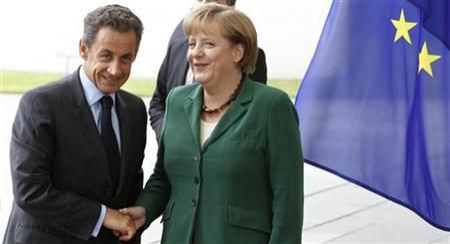European Debt Crisis: Can Politicians Ignore the People’s Will?
ANALYSIS

The European debt crisis doesn't have to exist because there are a number of feasible solutions to fix the mess.
The Eurozone can just throw more money at the problem. The European Central Bank (ECB) can print the money or core European countries can raise the money through the markets or taxation.
For a permanent solution, all the Eurozone has to do is form a fiscal union. To start, it just has to float euro-bonds, or a common euro-zone government debt backed by all its members.
The problem, however, is that the people of Europe don't seem to want any of that.
The Germans don't want to bail out the Greeks and include them in their fiscal union. In the latest Berlin state election, German Chancellor Angela Merkel's party was crushed once again as voters punished its pro-Eurozone stance.
The Greeks, on the other hand, don't like the austerity measures forced up them (i.e. the loss of sovereignty) and have violently protested against them.
On both sides, it's not just a case of a small minority of loudmouths; large segments of both populations genuinely don't want the implications of a fiscal union.
Partly because of this political resistance, the European debt crisis has worsened and the yields on peripheral debt have soared. Now, the Eurozone is pushed to the edge of a full-blown sovereign debt crisis.
Over the weekend, international pressures grew for the Eurozone to do something to contain the crisis, which some analysts and investors fear would cause a Lehman-like domino effect across the global financial system.
What's at risk is banks' exposure to peripheral European debt, which has already fallen in value and threatens to implode in a disorderly fashion.
The proposed solution is enlarging the size of the Eurozone bailout fund through leverage (i.e. borrowing). However, politicians from Germany and other northern European countries are reluctant to quickly move forward, reported the Wall Street Journal.
This is as fast as we can move. It's going to take six weeks to consider the bailout fund leverage option, said one Eurozone official, according to the Wall Street Journal.
Six weeks, however, may be too late.
Despite the public's frustration with the faults of the Eurozone, it does offer many benefits.
It lowers trade barriers for members and could give the euro a legitimate shot at challenging the U.S. dollar's reserve currency status.
At the root of the creation of the Eurozone and euro currency is a desire for more European integration, which could prevent future European wars and bring many other benefits.
However, democracy is also a core principle of Europe. So as long as people vote against European integration, as they are doing right now in Germany, further integration, or even protecting the integrity of current Eurozone institutions, may not be possible.
E-mail Hao Li at hao.li@ibtimes.com. For more useful global markets information, visit ibtimes.com/sections/global-markets.
© Copyright IBTimes 2025. All rights reserved.





















